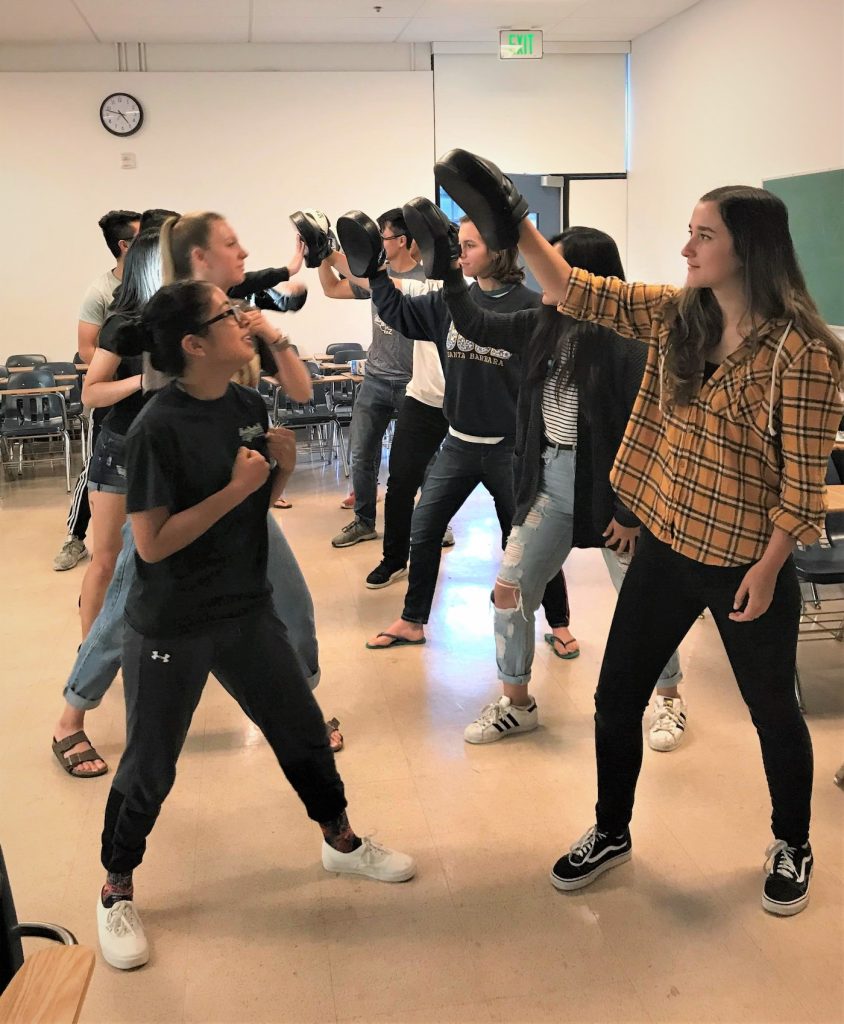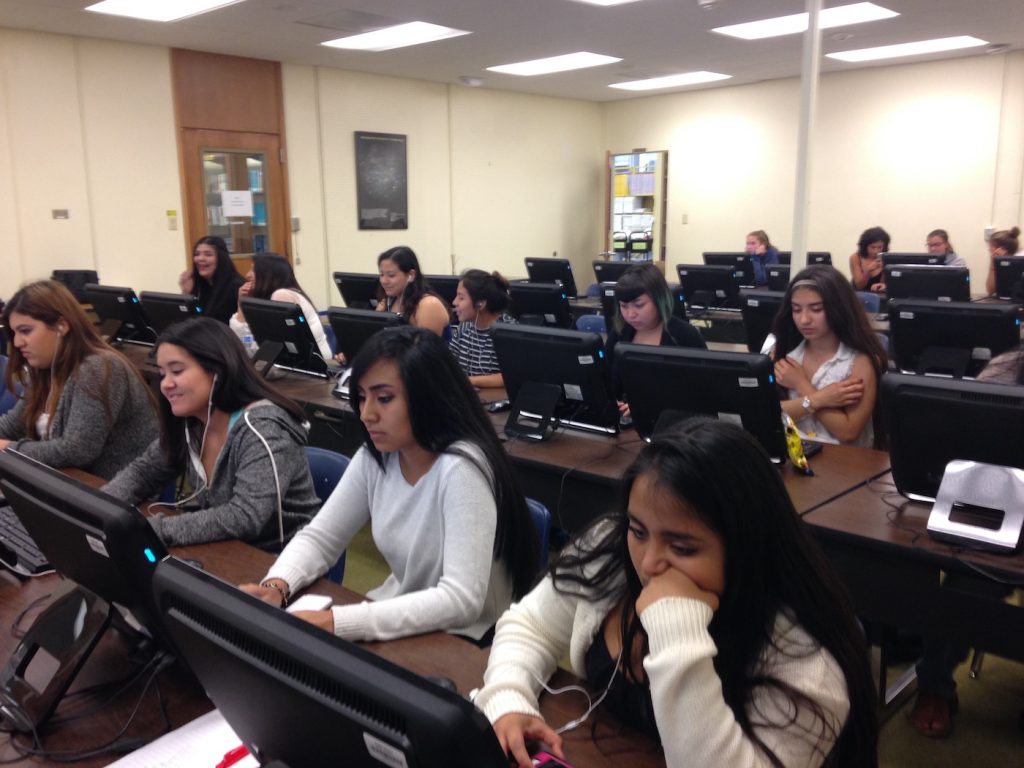STESA

The Winnie the Pooh characters Tigger and Eeyore normally wouldn’t come up in a conversation about sexual assault and consent. But at Standing Together to End Sexual Assault (STESA), any method that helps the nonprofit reach youth to achieve its goal of eliminating all forms of sexual violence is worth trying, including referencing the beloved critters from the A.A. Milne tale.
“Consent is based on choice, free from fear or pressure or manipulation, and the way we define consent for them is that both partners need to communicate with each other that they are knowingly, willingly, and actively agreeing to sexual contact,” explained Executive Director Elsa Granados, who has been part of the movement to end sexual violence since 1985, and the head of STESA (formerly the Santa Barbara Rape Crisis Center) since 1997. “Everybody knows about the characters from Pooh. What happens when you ask Eeyore to do something? He says really slowly and mournfully, ‘OK, I guess we can do that.’ If you ask Tigger, he gets very enthusiastic and starts jumping around and saying, ‘Yes. I wanna do that.’ Right? So when you want to have sexual contact with someone, you want a Tigger, not an Eeyore. That’s true consent.”

Christopher Robin and cohorts are just one avenue for educating youth about the subtleties and intricacies of sexual assault and consent offered by STESA, the 48-year-old agency that created the first-ever sexual assault hotline in Santa Barbara in 1974. The hotline is still active, and STESA is still the go-to place for survivors, able to intervene within hours of an assault as well as offering counseling to those who may have delayed sharing their stories. STESA’s full-time staff of four hotline responders and case managers along with dozens of volunteers can support both women and men with services that include medical and legal advocacy, reporting options including accompaniment for an assault-related issue, and mental health counseling as well as information and referrals.
With school back in session and students mask-free and nearly back to normal – as opposed to during the height of the pandemic, when STESA did its presentations over Zoom, and kids with questions or issues could contact the staff members as easily as positing a private message in a chat box – Granados has a particular focus on making sure that local youths are aware of STESA’s services and feel comfortable reaching out.
“We have intervention and prevention programs that are specifically designed for youth, even including teen support groups when enough of them want that,” she said. “And all of our services to teens are completely free of charge.”
The prevention side finds STESA going to classrooms, schools, and youth service organizations such as Boys & Girls Club and AHA!, Granados said. “Wherever youth are, we provide presentations full of information and resources, everything from a one-time appearance to a 10-week course about both how to access our services and how to prevent sexual assault. It’s all about changing mindsets, particularly those adolescents who are still developing their sense of relating to each other and learning their own boundaries. We talk about gender stereotypes, the myths and truths about sexual assault, and how to support a survivor because their friends are often the first person a teen will confide in.”
As indicated by Eeyore and Tigger, the STESA presenters also talk about consent, not only the definition, but also what it means on a practical level and how to obtain consent in everyday interactions without making it awkward or formal.

There are also self-defense classes designed specifically for youth that include awareness about the issue of sexual assault while also teaching assertiveness.
“Most of self-defense has to do with how one communicates verbally and non-verbally in addition to any physical techniques, which are hopefully not something anyone should have to use,” Granados said.
STESA youth programs also reach out to adults to support parents with examples of how to talk with teens about sexual assault, consent, and boundaries.
“We would love to do that more because what we are able to communicate to parents and PTA organizations just serves to reinforce at home the messages kids hear from us,” Granados said.
STESA’s ability to broadly confront sexual assault as a society-wide issue from the full spectrum perspective of intervention, prevention, and education aspects is part of what has made the nonprofit such a vital resource for nearly five decades.
Donations to support STESA’s work in its ongoing mission are always needed, Granados said, including ones earmarked for its annual campaign for national Sexual Assault Awareness Month, which returns in April. But even those with limited financial resources can make a big difference through volunteering, she said.
“We lost quite a few during the pandemic, as people were staying away from each other as they tried to navigate COVID,” she said. “We need people to volunteer on our hotline, answering calls, and help us provide services. That really helps us extend our reach.”
Standing Together to End Sexual Assault
Executive Director: Elsa Granados
433 E. Canon Perdido St.
(805) 963-6832 ext. 15
sbstesa.org





